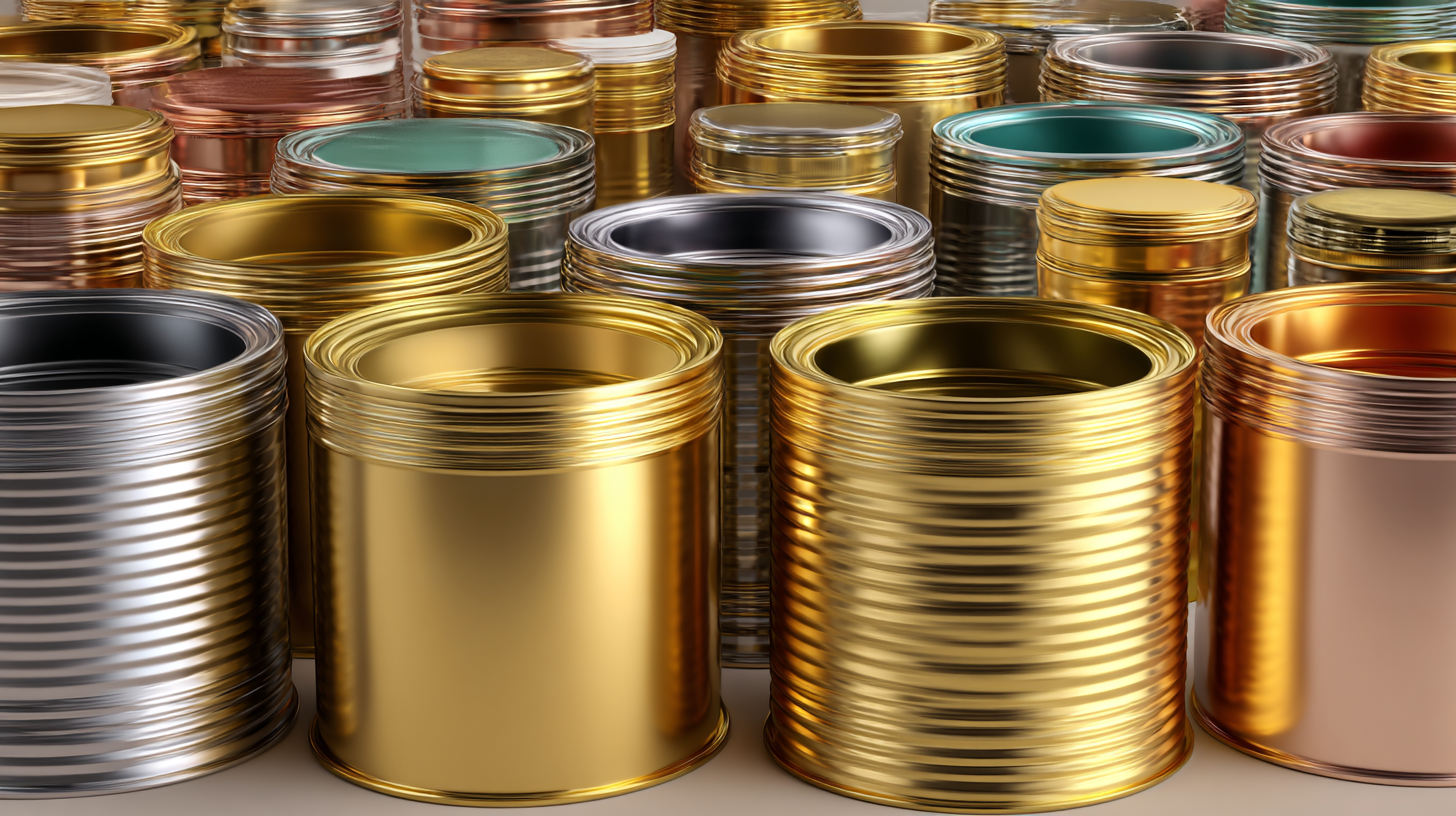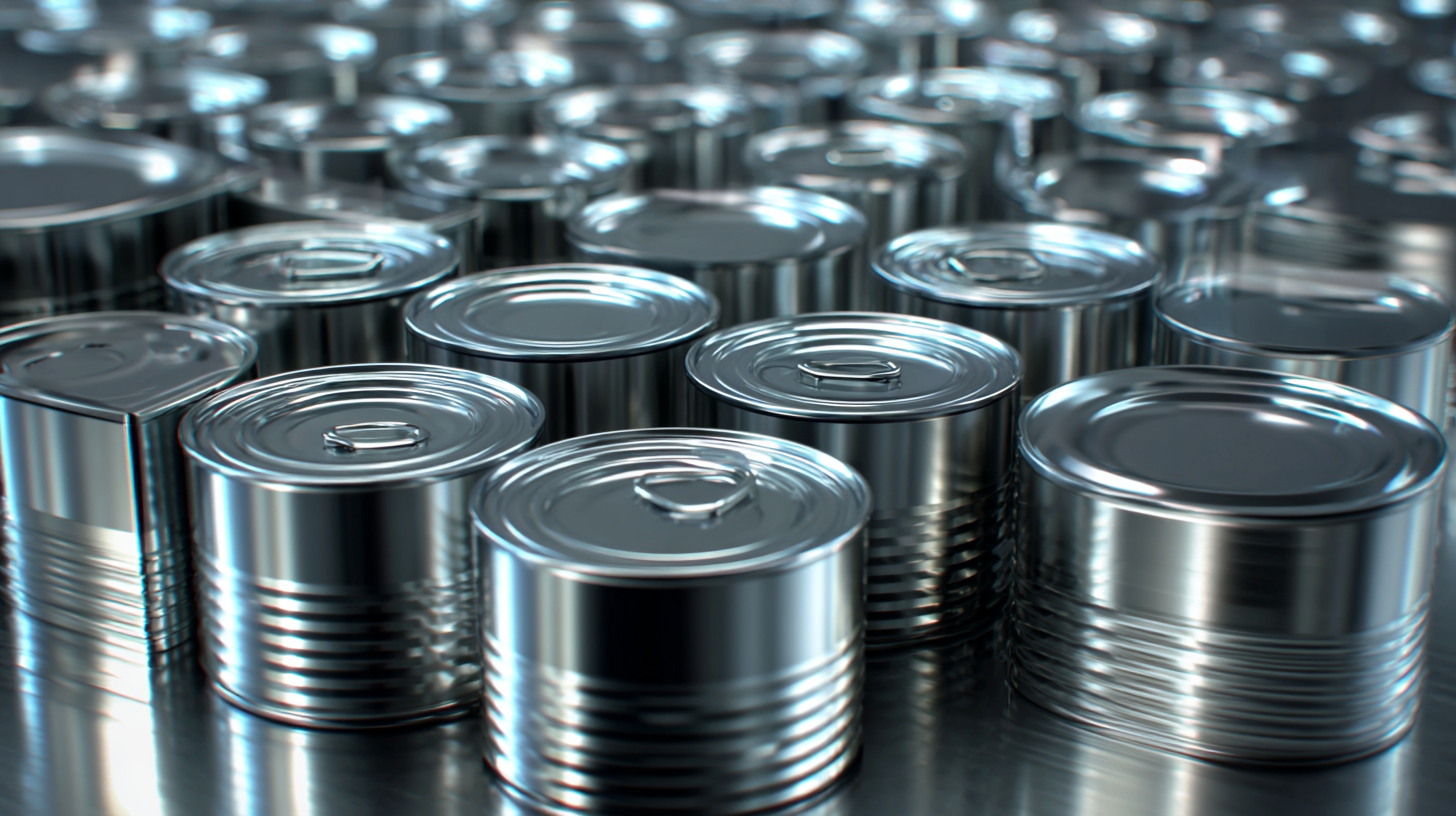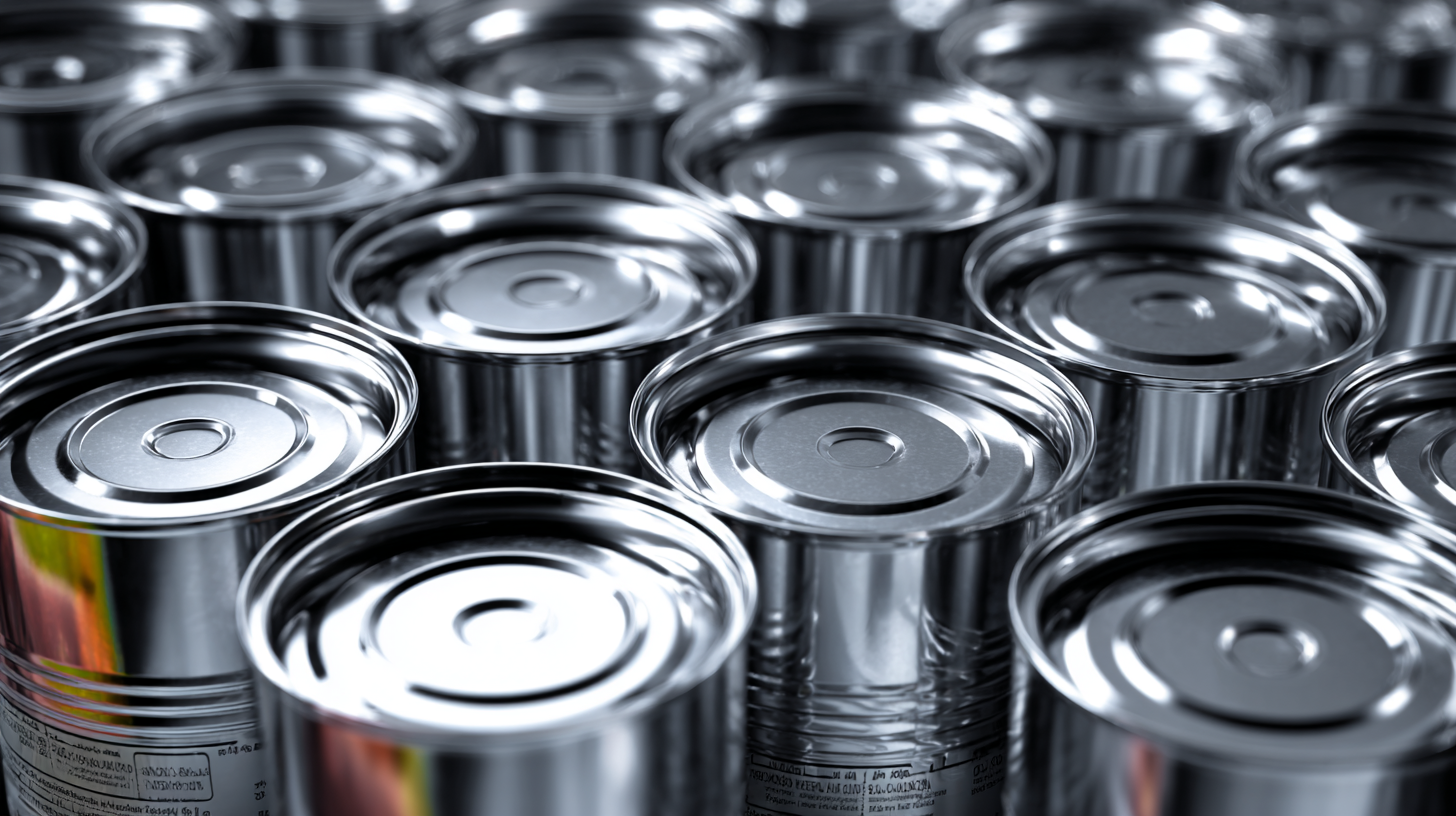 +8618680445103
+8618680445103
Free Standard Samples can be provided for you to check the quality.
Leave Your Message
The global metal cans market is experiencing significant growth, driven by the increasing demand for sustainable and efficient packaging solutions. According to a recent report by Smithers Pira, the metal packaging market is projected to reach approximately $140 billion by 2024, with a notable emphasis on premium quality offerings. This surge can be attributed to metal cans' unmatched durability and recyclability, making them a preferred choice among global importers seeking to minimize their carbon footprint while ensuring product safety.

Chinese craftsmanship stands out in this sector, as manufacturers leverage advanced technology and traditional techniques to produce metal cans that not only meet but exceed international standards. As we delve into the unparalleled advantages of premium quality metal cans, it becomes evident that they are more than just a packaging solution—they represent a blend of innovation and sustainability, setting a new benchmark in the industry.
Premium metal cans are increasingly favored by global importers due to their numerous benefits, particularly in the beverage and aerosol industries. One significant advantage is the recyclability of aluminum cans, which not only minimizes waste but also fosters a sustainable business model. As consumers become more environmentally conscious, the demand for recyclable packaging is driving the growth of the global aerosol can market. Importers can enhance their brand image by choosing premium metal cans that align with eco-friendly practices.
Tips for importers include focusing on the entire lifecycle of the packaging. Invest in cans that use high-quality aluminum, as this contributes to their durability and recyclability. Additionally, emphasize the importance of collaborating with suppliers who implement sustainable sourcing practices, ensuring that the materials used are both ethically and environmentally responsible. Lastly, staying informed about tariffs and regulatory changes in metal packaging will help importers make strategic decisions, reinforcing their position in a competitive market.
| Dimension | Value | Benefit for Importers |
|---|---|---|
| Material Type | Aluminum and Steel | Durability and Lightweight |
| Thickness | 0.25 mm | Enhanced Protection |
| Capacity | 500 ml | Versatile Usage |
| Finish | Matte and Glossy | Aesthetic Appeal |
| Recyclability | 100% | Sustainability |
| Customization Options | Color, Size, Printing | Branding Opportunities |
 Chinese metal cans stand out in the global market due to their exceptional craftsmanship and innovative features. The rising demand for premium quality packaging has led to a notable growth in the tinplate packaging market, projected to reach significant market sizes across various segments, particularly in Western Europe. The combination of functionality and aesthetics in Chinese metal cans makes them a favorite among global importers. Advanced manufacturing techniques ensure durability, while their recyclability contributes to sustainability—an essential aspect as consumers become more eco-conscious.
Chinese metal cans stand out in the global market due to their exceptional craftsmanship and innovative features. The rising demand for premium quality packaging has led to a notable growth in the tinplate packaging market, projected to reach significant market sizes across various segments, particularly in Western Europe. The combination of functionality and aesthetics in Chinese metal cans makes them a favorite among global importers. Advanced manufacturing techniques ensure durability, while their recyclability contributes to sustainability—an essential aspect as consumers become more eco-conscious.
Tips for selecting the right metal can include evaluating the thickness and type of material. Cans with appropriate thickness not only preserve the contents effectively but also enhance brand visibility. Additionally, consider the storage conditions, as they can influence the quality and flavor of the products inside.
Moreover, as Chinese firms strengthen ties with Russian metal producers amidst shifting market dynamics, access to high-quality raw materials is becoming more streamlined. This synergy reflects a growing trend where Chinese manufacturers lead in innovation, establishing a benchmark that competitors struggle to match. As the global aluminum beverage can market is projected to grow significantly, investing in premium Chinese metal cans could position brands advantageously in a competitive landscape.
When it comes to importing metal cans, understanding the essential quality control measures is paramount for success in the competitive bottled water market. As stakeholders look to source premium quality products from China, the importance of rigorous quality assurance cannot be overstated. This includes comprehensive inspections during production, materials testing, and adherence to international safety standards. By implementing such measures, importers can ensure that the cans they bring to market not only meet consumer expectations but also comply with regulatory requirements.
The bottled water processing industry is also witnessing a surge in demand for quality packaging solutions. Brands and manufacturers are prioritizing sturdy, reliable metal cans that can maintain product integrity and shelf appeal. To navigate this landscape successfully, importers must collaborate closely with suppliers and invest in quality control systems that monitor every stage of production. This proactive approach safeguards the end product, ultimately enhancing brand reputation and fostering customer loyalty in an increasingly discerning market.
When selecting a supplier for premium quality metal cans, especially from China, global importers must consider several pivotal factors to ensure they partner with the right manufacturer. The surge in the beverage can market, projected to reach $36.59 billion by 2027, highlights the growing demand for high-quality aluminum cans. Importers should look for suppliers who demonstrate not only superior craftsmanship but also a commitment to sustainability, as the trend toward eco-friendly packaging is becoming increasingly important.
It's essential to evaluate the supplier's reputation within the industry, their production capabilities, and compliance with international standards. Additionally, understanding the supplier's ability to streamline the supply chain and establish effective recycling systems can add significant value. By focusing on these criteria, importers can make informed decisions that not only benefit their business but also promote environmental responsibility within the metal packaging sector.

When importing premium quality metal cans from China, understanding the specific regulations in your market is crucial for a smooth transaction. Different countries have unique safety standards and import laws that can affect how your products are processed at customs. It's essential to do thorough research on your target market's regulations regarding materials, labeling, and safety compliance. This not only ensures that you avoid delays but also protects your brand reputation and customer trust.
**Tip:** Always check if your imported metal cans need any certifications or testing before they can be sold in your market. This can range from food safety compliance to environmental regulations depending on the intended use of the cans.
To further streamline your import process, establish a reliable relationship with your suppliers. Clear communication about your needs and expectations can significantly reduce misunderstandings and ensure that the products meet the required specifications. Questions about the documentation they'll provide, such as customs declarations and quality assurance certificates, should be addressed early on.
**Tip:** Collaborate with a local customs broker who understands the intricate details of import regulations. This can save you time and help navigate any potential issues that may arise during the importation of your metal cans.
